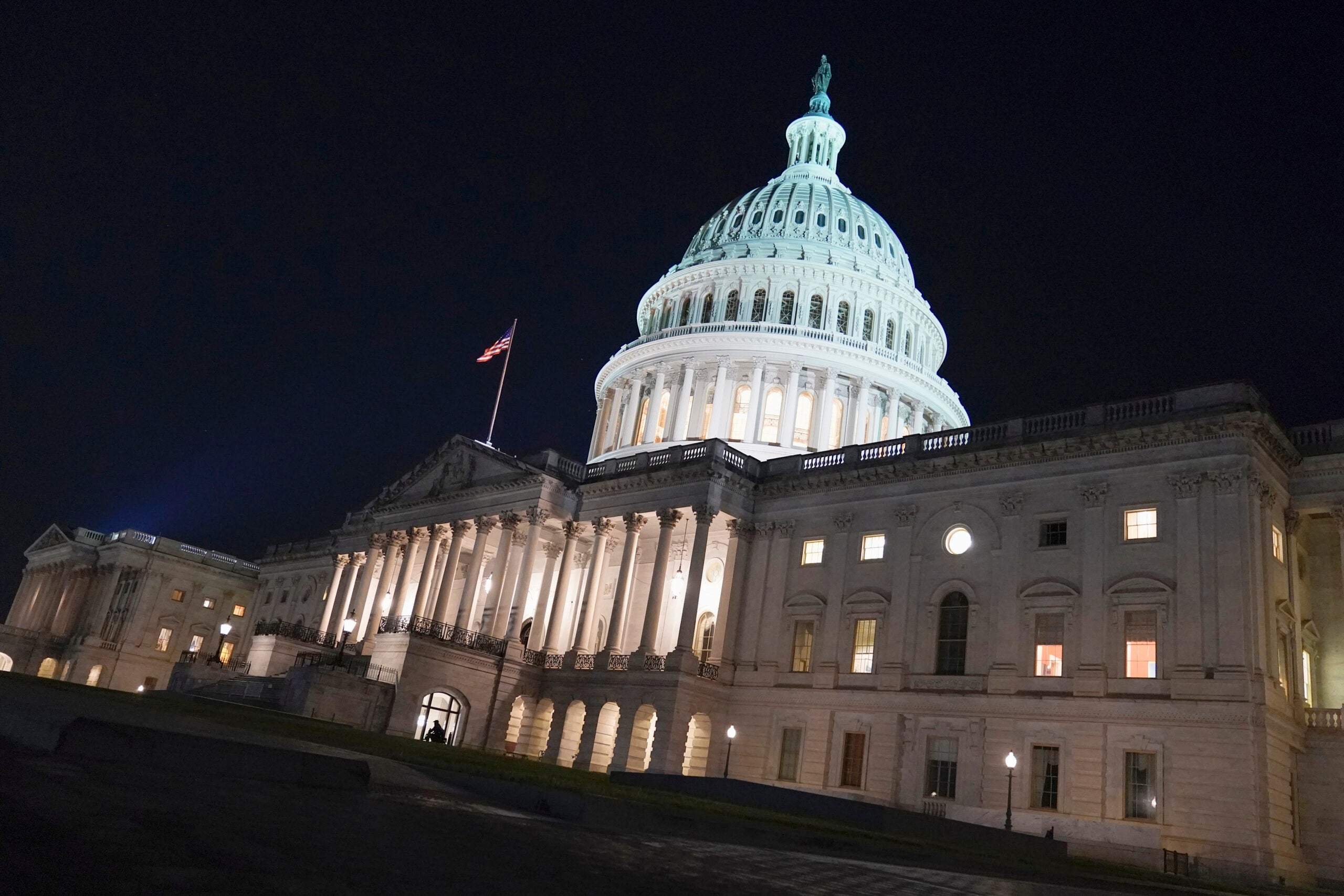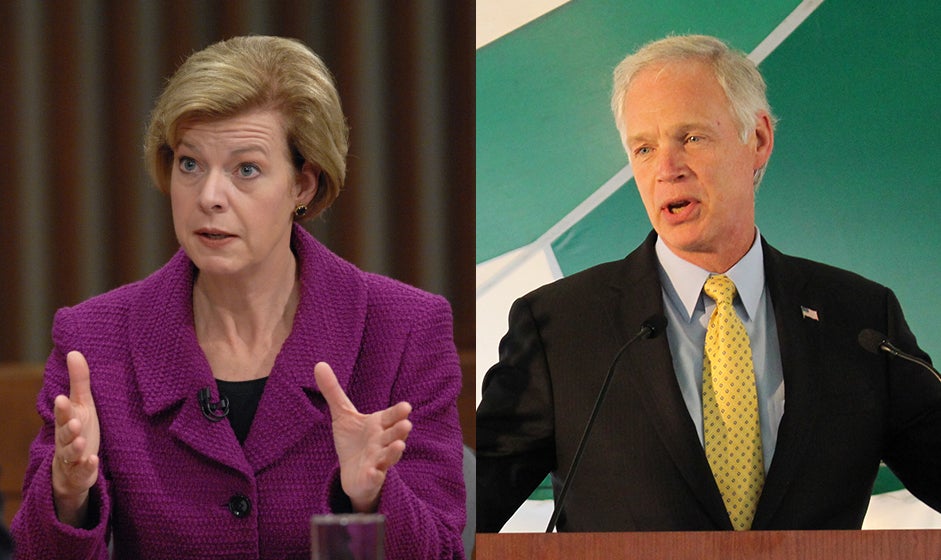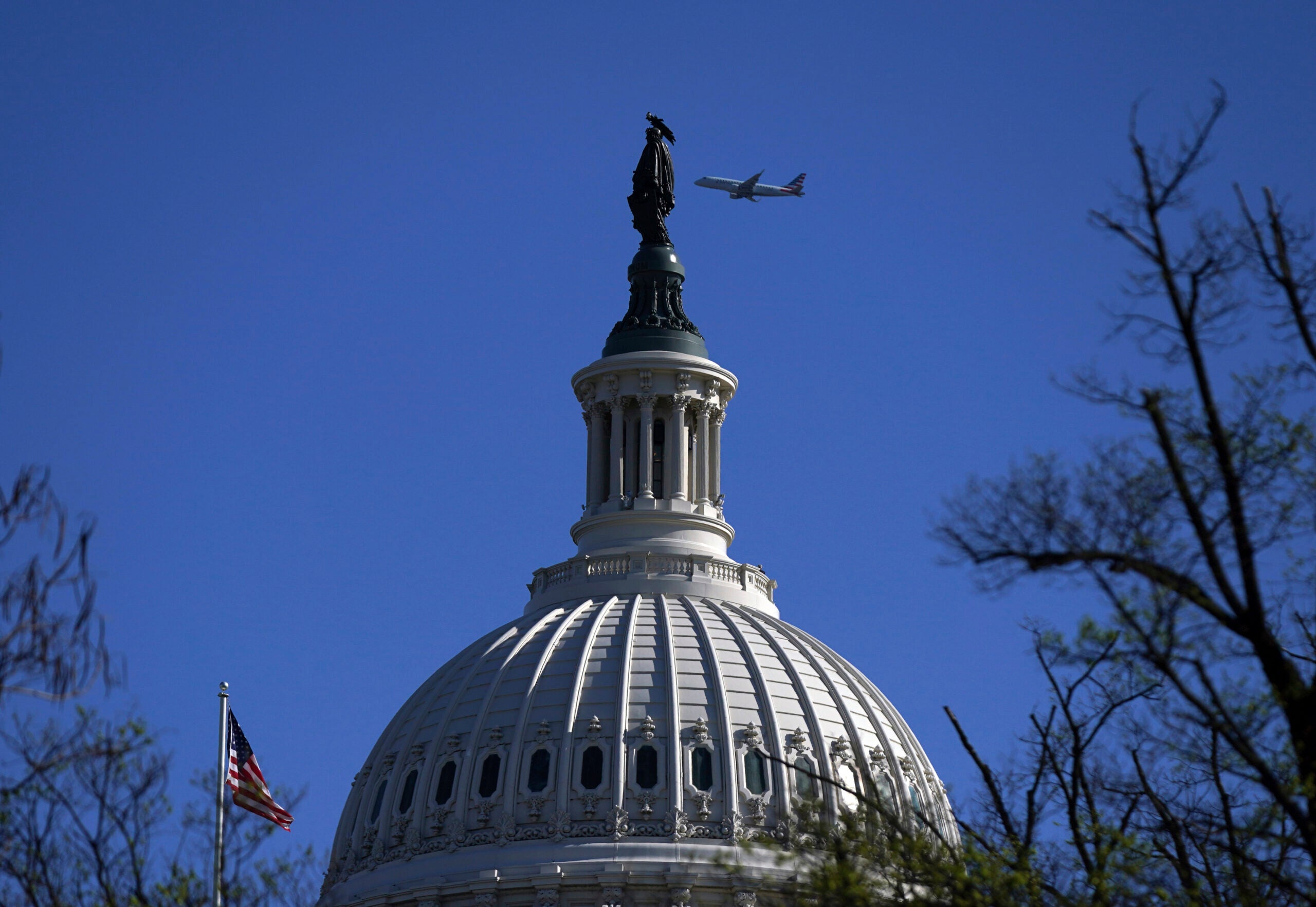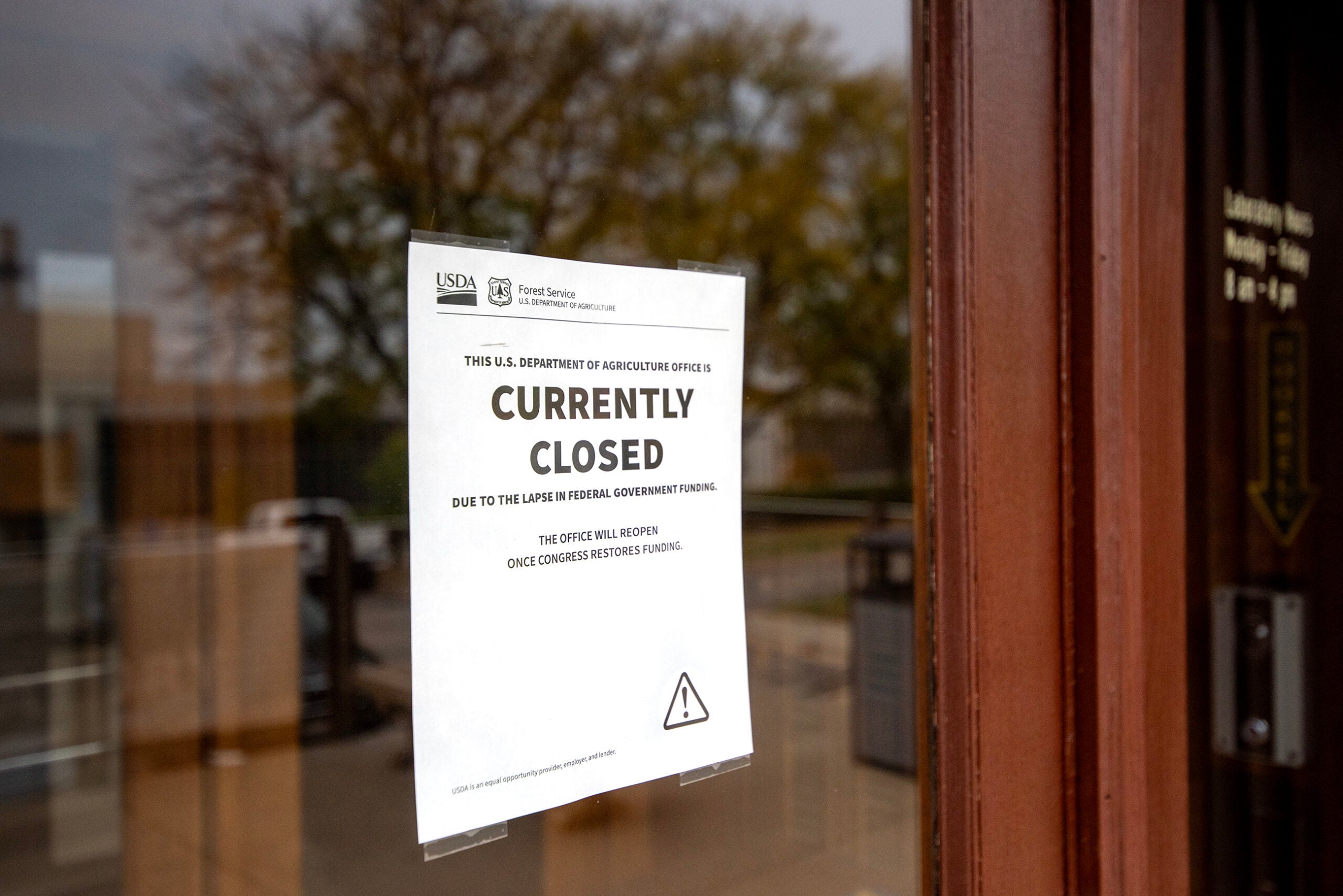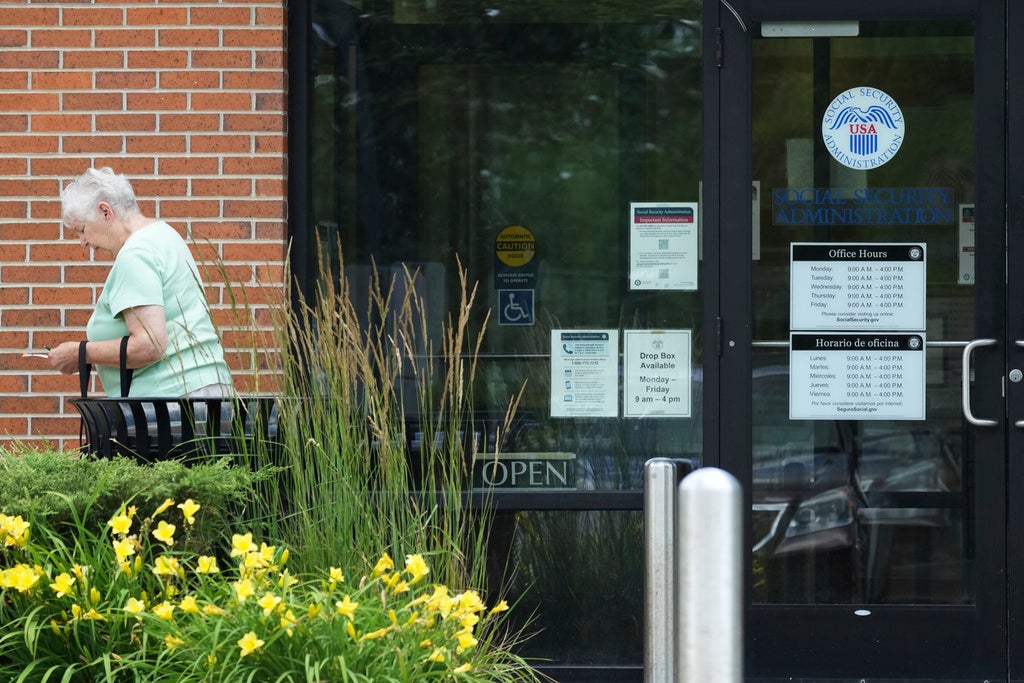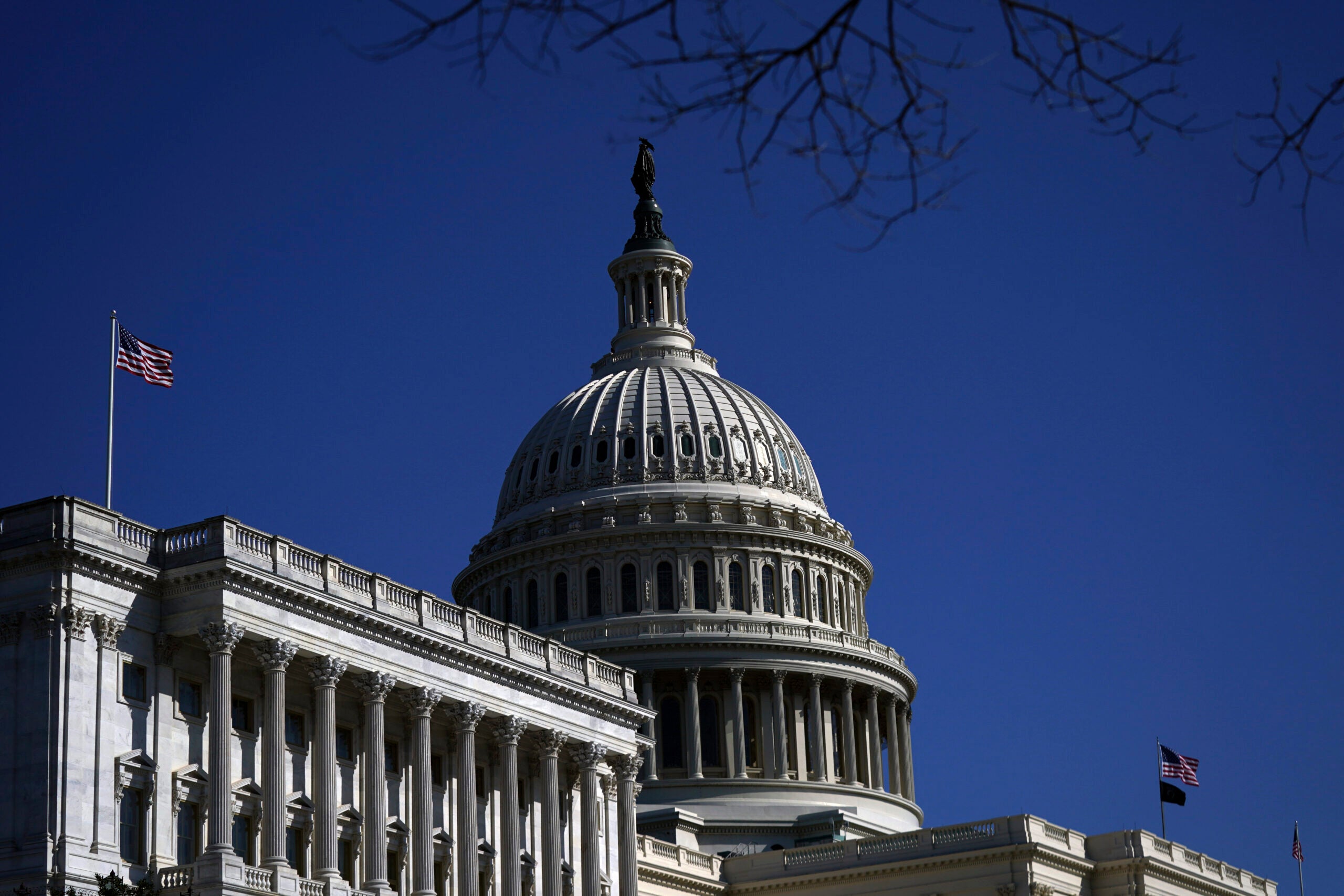As Congress battled unexpectedly this week over a stop-gap spending bill to keep the federal government open, the fight renewed focus on the federal workers and programs that would be affected by a shutdown.
It left tens of thousands of Wisconsinites wondering if they’d head into the holiday season without paychecks.
There are around 18,000 federal civilian employees in Wisconsin, according to the Congressional Research Service. If members of the U.S. House of Representatives and U.S. Senate don’t hammer out a spending deal by midnight Friday, those workers would have either been furloughed or required to work without pay. The same would apply to military personnel in Wisconsin.
A bipartisan bill to keep the government open was initially derailed Thursday, after billionaire Elon Musk and President-elect Donald Trump began attacking the legislation on social media. On Friday, the U.S. House passed a third, more streamlined spending bill.
Jessica LaPointe of Madison is the president of AFGE Council 220, which represents Social Security Administration employees in Wisconsin and across the nation. She told WPR that in a shutdown, SSA offices would remain open, but some services, like income verification, would be paused.
“Most of our duties during a shutdown are fielding questions from the American people,” LaPointe said. “It’s a chaotic and confusing time, especially for our beneficiaries who are disabled, and elderly individuals.”
LaPointe said SSA workers are dedicated, but many live paycheck to paycheck, which makes potential shutdowns over political disagreements all the more frustrating.
“It’s a really stressful and challenging time for federal workers, for Social Security workers on the front lines, who are dealing with public concern over a government shutdown and having to pay out the basic needs of our population while having so much economic uncertainty of our own,” Lapointe said.
News with a little more humanity
WPR’s “Wisconsin Today” newsletter keeps you connected to the state you love without feeling overwhelmed. No paywall. No agenda. No corporate filter.
The latest shutdown fight also raised questions about how it could affect holiday travel. Transportation Security Administration workers are considered essential employees, so they would also be required to work without pay.
Darrell English is the president of the AFGE 777 union, which represents TSA workers in Wisconsin and Illinois. He said members also live paycheck to paycheck while working stressful jobs.
“Which makes it even more difficult to stay focused, especially going into the holidays,” English said. “We never want to have a person have to wonder how they will provide for their families.”
Wisconsin farmers would also be impacted if the federal government shuts down.
Tyler Wenzlaff is the director of national affairs for the Wisconsin Farm Bureau Federation. He said one immediate impact of a shutdown would be the closure of Farm Service Agency offices across the country. Wenzlaff said those offices assist farmers with loans and advice as they make plans for the upcoming growing season.
“And so, we really need those offices to be open right now,” Wenzlaff said. “A government shutdown is not ideal when we’re trying to make those decisions right now.”
A more pressing issue for farmers, Wenzlaff said, is Congress’ inability to pass a new farm bill. Congress failed in September to reauthorize the massive spending program.
Wenzlaff said unless a 2018 Farm Bill is extended by Jan. 1, 2025 there would be “devastating” impacts on farmers and consumers. He said that’s because a 1940’s-era law that includes price support programs would go back into effect. Wenzlaff said that would force the federal government to purchase dairy products at significantly inflated prices.
“So, what that does is grocery prices, a gallon of milk doubles or triples in cost, restaurant cheese prices go through the roof,” Wenzlaff said.
Wisconsin universities and college students could also be impacted by a shutdown. University of Wisconsin-Madison spokesperson Kelly Tyrrell told WPR in a statement that college officials are monitoring the situation.
“We would expect the largest impacts to be on research, since agencies can’t start new programs, issue new grants, or review existing applications during a shutdown,” Tyrrell said. “There may also be some impact to students, staff or faculty applying for changes in visa status during the shutdown period.”
The pared-down spending bill that cleared the House left the U.S. Senate and president just hours to act ahead of the shutdown deadline. The measure passed on a lopsided 366-34 vote, with Wisconsin U.S. Reps. Tom Tiffany, R-Minocqua, and Glenn Grothman, R-Glenbeulah, among those voting no.
Wisconsin Public Radio, © Copyright 2025, Board of Regents of the University of Wisconsin System and Wisconsin Educational Communications Board.

